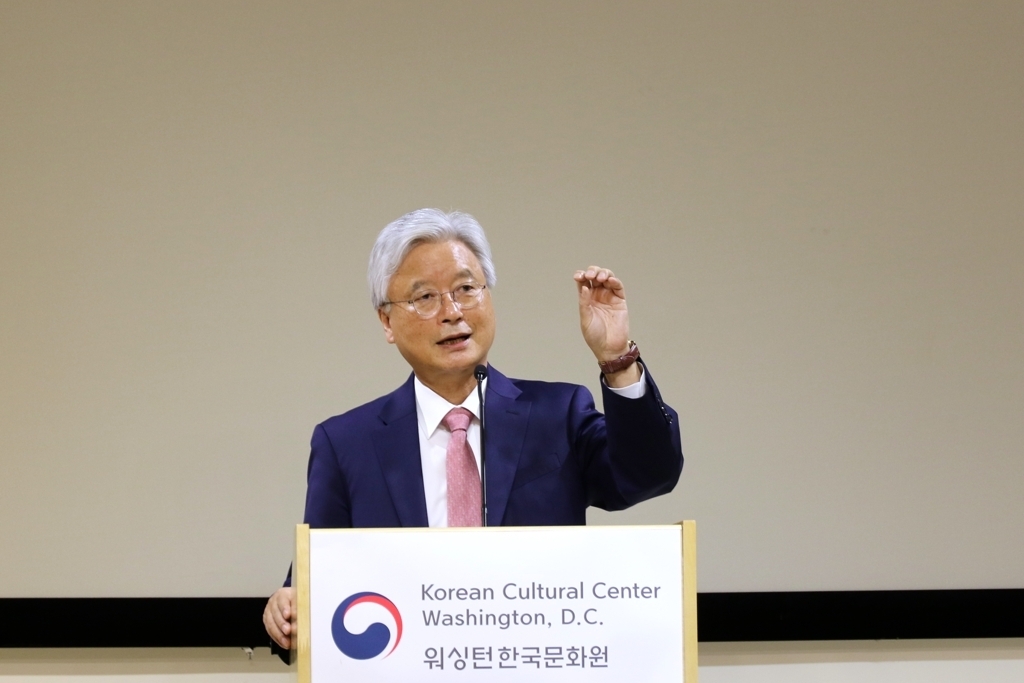The South Korea-United States alliance will remain firm despite the planned termination of a military intelligence-sharing agreement between South Korea and Japan, Seoul's top envoy to Washington said Wednesday.
Amb. Cho Yoon-je said the US's disappointment at South Korea's decision to withdraw from the General Security of Military Information Agreement is understandable, given that Washington had opposed it.
 |
(Yonhap) |
"It's true that the American side delivered its position on wanting the renewal of GSOMIA for the sake of South Korea-Japan security cooperation to our government across various levels and through multiple channels," he told reporters at a briefing as he approaches the end of his term later this year.
Seoul mulled over the decision until the "last (moment)" in consideration of Washington's position, but was ultimately forced to take action, he said.
"We continue to emphasize (to the US) that even under these circumstances our intention to firmly maintain the South Korea-US alliance and ensure the foundation of bilateral security cooperation is unshaken," added Cho.
South Korea announced its decision to pull out of GSOMIA last week, citing Japan's refusal to hold talks on resolving separate disputes on trade and shared history. The pact was due to renew automatically on Saturday.
Washington has expressed concern and disappointment at the decision, saying the move creates challenges for trilateral security cooperation against North Korea's nuclear threats and China's military rise.
On US-North Korea denuclearization talks, the ambassador said it is his understanding that there has been "no concrete progress" toward their resumption.
He also said Seoul and Washington have been consulting closely to analyze the specifications of North Korea's recently launched short-range ballistic missiles.
"The US side continues to send positive signals for the resumption of North Korea-US talks despite the circumstances," Cho said. "I anticipate that North Korea will soon respond to the US's sincere efforts." (Yonhap)






![[Herald Interview] 'Trump will use tariffs as first line of defense for American manufacturing'](http://res.heraldm.com/phpwas/restmb_idxmake.php?idx=644&simg=/content/image/2024/11/26/20241126050017_0.jpg)
![[Exclusive] Hyundai Mobis eyes closer ties with BYD](http://res.heraldm.com/phpwas/restmb_idxmake.php?idx=644&simg=/content/image/2024/11/25/20241125050044_0.jpg)
